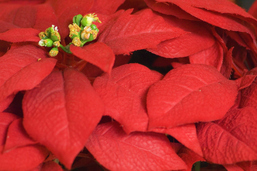Safety For Your Pet During The Holidays
We love the holidays for celebrating some of life’s happiest moments and making memories with loved ones. Dogs and cats love the holidays too, especially when their owners and guests share extra time and pet treats with them. But all the interesting foods and decorations in our homes during the holidays can be irresistible to pets, sometimes landing them in emergency pet hospitals after tasting or eating them.
“Every year during the holidays, calls to Pet Poison Helpline increase substantially,” said Ahna Brutlag, DVM, MS, DABT, DABVT and associate director of veterinary services at Pet Poison Helpline. “Certain foods and items that bring holiday cheer to our homes can have the opposite effect on pets when ingested, making them very sick.”
Armed with knowledge, pet owners can keep their beloved best friends out of harm’s way this holiday season. To inform pet owners, and also to debunk some age-old myths, the veterinarians and toxicology experts at Pet Poison Helpline offer these tips for pet owners.
Human Eats and Drinks: Not for Pets
Some holiday foods we hold dear can be quite dangerous to pets, such as chocolate and cocoa, candy and sugarless gums that contain xylitol, yeast bread dough, leftover fatty meat scraps, and fruit cakes with raisins and currants. The fruitcake threat can be compounded if the cake is soaked in rum or another alcohol. Alcohol poisoning in pets can result in a dangerous drop in blood sugar, blood pressure and body temperature, potentially leading to seizures and respiratory failure. So, while entertaining this holiday season, it’s perfectly acceptable to ask guests to refrain from sharing human food and drinks with pets.
Seasonal Holiday Plants: Myths Debunked

Herein lie the myths. Over the years, the relative toxicity of poinsettias has been exaggerated. In reality, if ingested by a dog or cat, the sticky white sap usually causes only minor mouth or stomach irritation. Likewise, Christmas cactus can cause vomiting and diarrhea, and the spiny leaves of the Christmas or English holly can cause irritation and damage to pets’ stomachs and intestines. While serious complications aren’t likely with holiday plants, it’s still best to keep them out of pets’ reach.
Tinsel and Liquid Potpourri: Cat Owners Beware
Tinsel should be banned from households with cats. It looks like a shiny, fun toy to cats, but when ingested, tinsel can wrap around the tongue or anchor itself in the stomach making passage through the intestines impossible. Matters are made worse when the intestines contract and move, as tinsel can slowly cut through the tissue and cause severe damage to the intestinal tract. For all these reasons, it’s also best to keep ribbon, yarn and thread stowed away.
Liquid potpourris are dangerous too. They typically contain cationic detergents and essential oils that, if consumed by a cat, can cause severe chemical burns in the mouth, fever, difficulty breathing and tremors. Dogs are not as sensitive to the chemicals, but its best to keep potpourri out of their reach as well.
Handbags: Stow Them Away!
Be sure to store guest’s handbags out of your pets’ reach. Handbags typically contain many items poisonous to dogsand cats. The most dangerous are prescription medications, pain medications (e.g., Tylenol, Advil, Aleve), sugarless chewing gum, asthma inhalers, cigarettes, coins, and hand sanitizers.
Gifts: The Best Choice for Pets

Give the gift of safety and health to your pets by downloading and using the Pet Poison Help iPhone app for only $1.99. It has an extensive database of more than 200 foods, drugs, household cleaning supplies and plants that are potentially poisonous to pets. Each toxin has a full color photo, description, list of symptoms, and a bright yellow banner that indicates the severity of the toxin, from “mild to moderate,” to “moderate to severe.”
As you deck the halls and celebrate, keep the holidays happy for pets by placing potentially dangerous items out of their reach. If, however, you think a pet may have ingested something harmful, take action immediately. Contact your veterinarian or Pet Poison Helpline at 1-800-213-6680. At only $39 per call including follow-up consultations, Pet Poison Helpline is the most cost-effective animal poison control center in North America.
About Pet Poison Helpline
Pet Poison Helpline, an animal poison control center based out of Minneapolis, is available 24 hours, seven days a week for pet owners and veterinary professionals that require assistance treating a potentially poisoned pet. The staff provides treatment advice for poisoning cases of all species, including dogs, cats, birds, small mammals, large animals and exotic species. As the most cost-effective option for animal poison control care, Pet Poison Helpline’s fee of $39 per incident includes follow-up consultation for the duration of the poison case. Pet Poison Helpline is available in North America by calling 800-213-6680. Additional information can be found online at www.petpoisonhelpline.com.






0 Comments